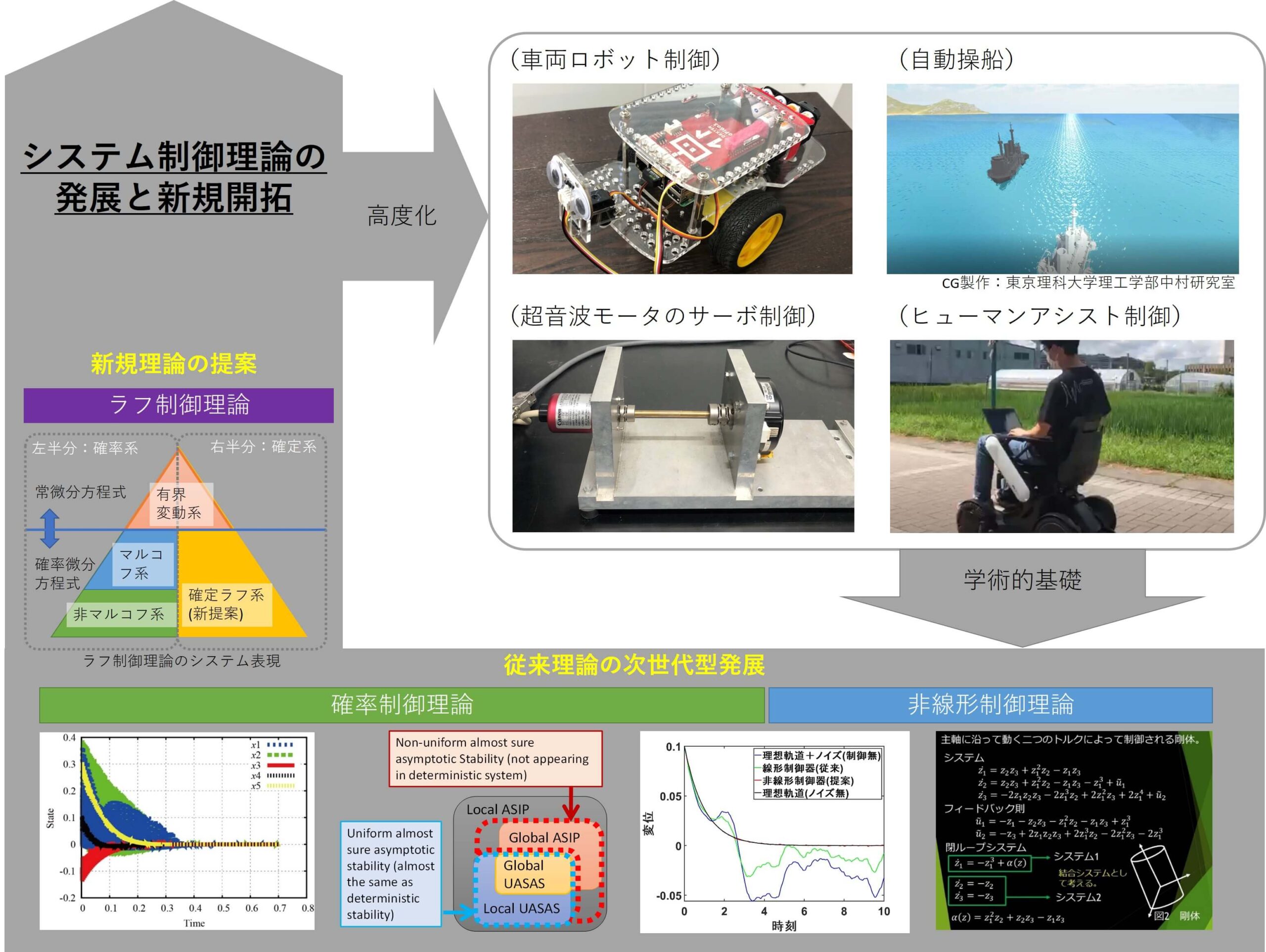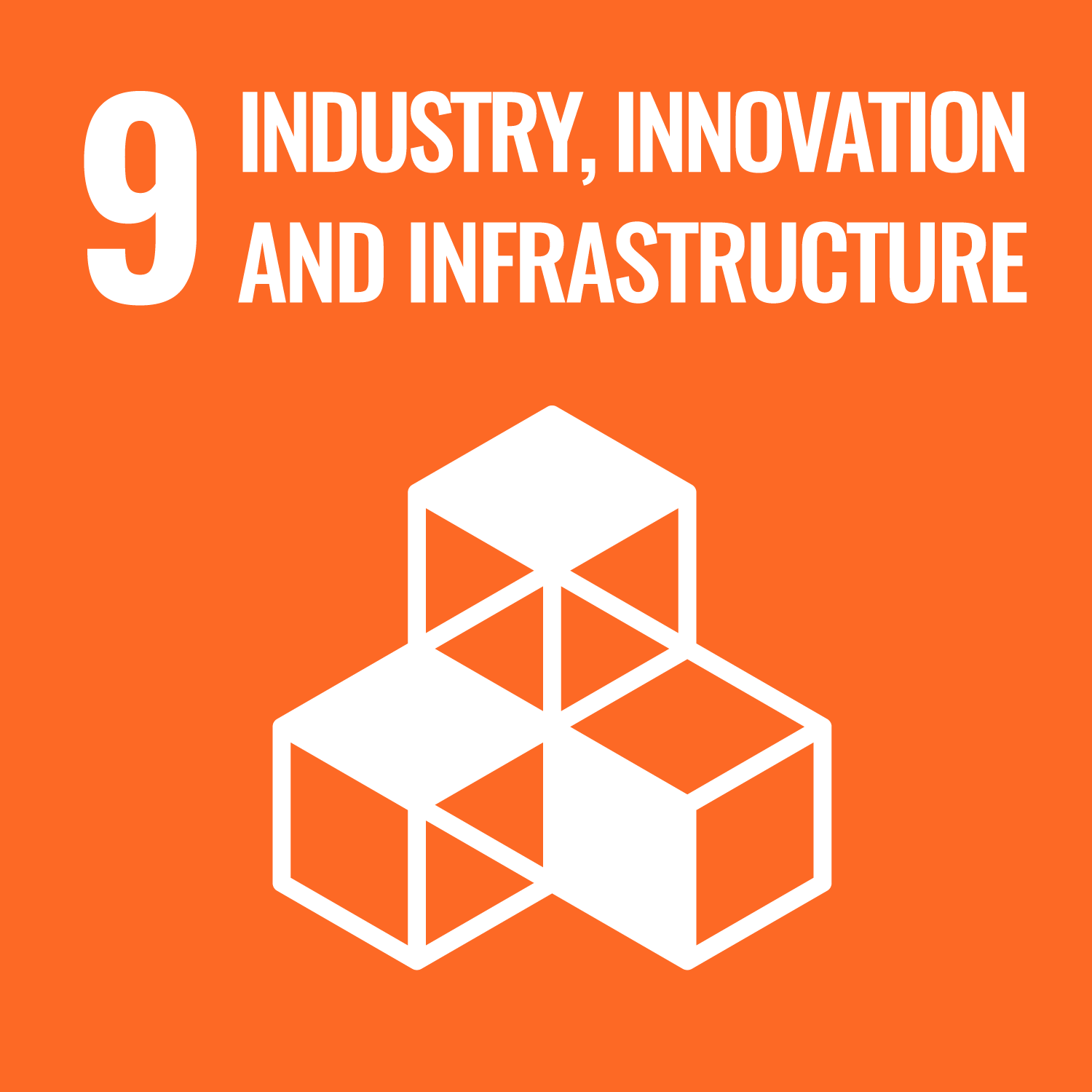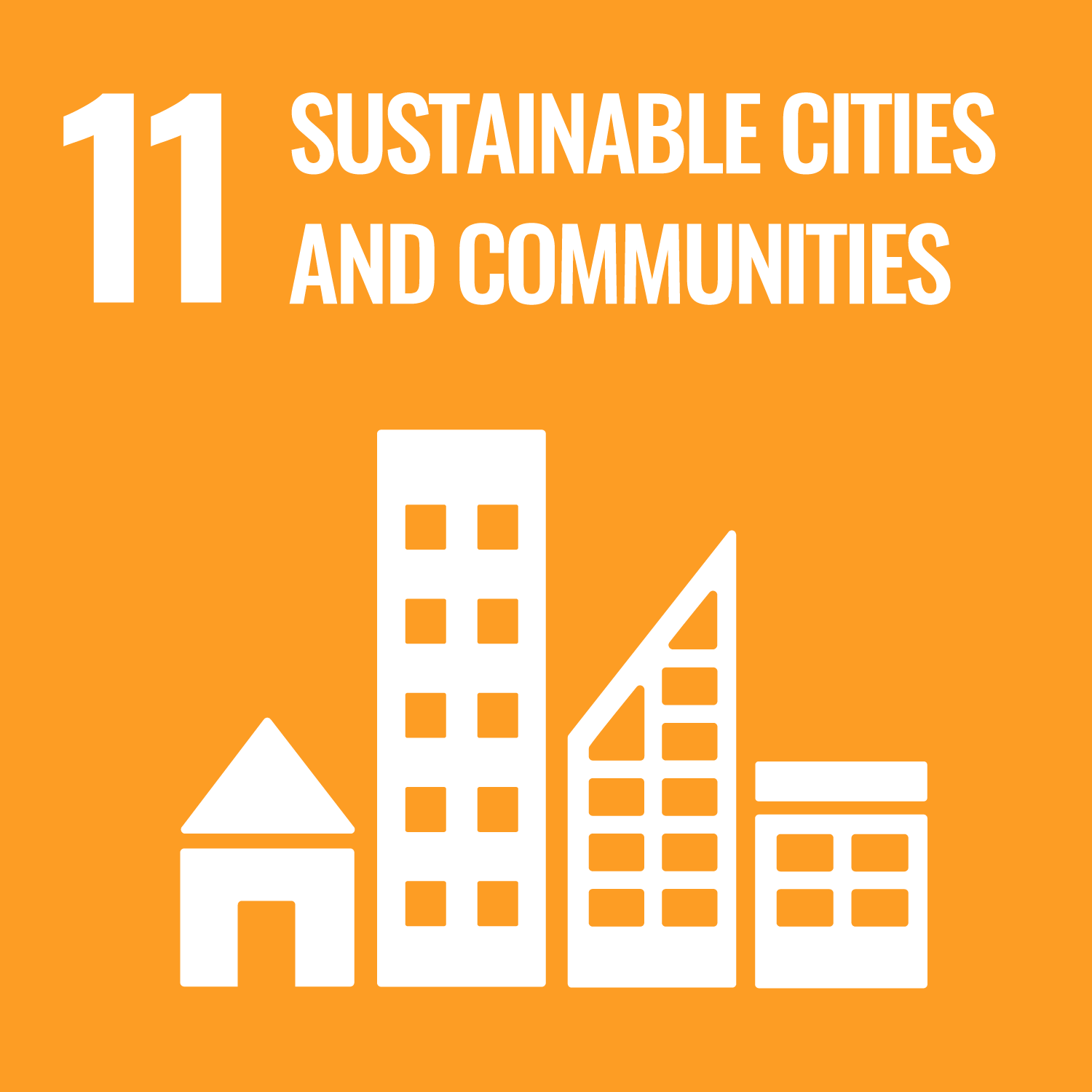Development of Next Generation System Control Theory Driven by Highly Complex Signals
Graduate School of Science and Engineering (Engineering) Department of Mechanical Engineering Program Associate Professor
NISHIMURA Yuki
Background and objectives of activities
The Society 5.0, a near-future vision essential for achieving the SDGs, is a society that combines economic development and solutions to social issues based on "cyber-physical systems" that highly integrate cyber-space (virtual space) and physical space (real space). One of the fundamental technologies for analyzing and controlling cyber-physical systems is "system control," which needs to be developed and pioneered in terms of both theory and application.

Summary of Activities
In addition to improving basic industrial technologies such as control of vehicle robots, automatic ship handling, and motor control, he also conducts research on "human-assist control," an assistive motion technology that allows humans to "safely" move machines and electronic equipment as they wish. While directly dealing with these practical applications, we also vigorously promote the development of system control theory itself and new explorations. As a distinctive feature, we aim to create a theory that enables analysis and control of complex properties such as "nonlinearity" and "irregularity," which are included in many real systems, by considering them as highly complex signals.
Expected Benefits
Development of the applied issues being addressed will lead to the development of "Goal 9: Let's create a foundation for industry and technological innovation," "Goal 4: High-quality education for all," and "Goal 11: Creating a livable community. And since human-assist control is also related to welfare, it is expected to contribute to "Goal 3: Health and welfare for all.
















